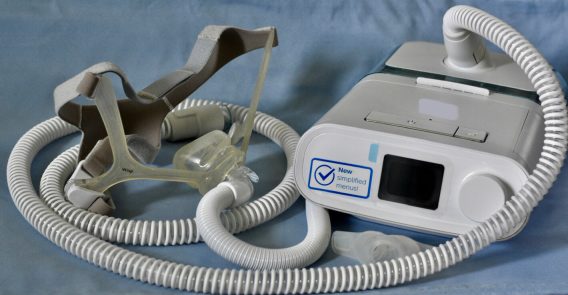Philips Sets Aside $630M Ahead of Class-Action CPAP Lawsuits
Editors carefully fact-check all Drugwatch.com content for accuracy and quality.
Drugwatch.com has a stringent fact-checking process. It starts with our strict sourcing guidelines.
We only gather information from credible sources. This includes peer-reviewed medical journals, reputable media outlets, government reports, court records and interviews with qualified experts.

In its first-quarter earnings report, beleaguered CPAP maker Philips Respironics announced it would set aside $630 million (€575 million) ahead of possible class-action lawsuit resolutions against the company.
Netherlands-based Philips reported a net loss of nearly $774 million, partially due to restructuring efforts and the aftermath of the 2021 recall of 5.5 million Philips CPAP machines in the United States.
“Resolving the Philips Respironics recall for patients remains our highest priority. In the first quarter, we have recorded a provision in anticipation of a resolution of the economic loss class action in the U.S.,” CEO Roy Jakobs wrote in the earnings report. “This is an important step in addressing the litigation related to the recall.”
Thousands of lawsuits have been filed against Philips alleging that its machines caused personal injury to users after the polyester-based polyurethane (PE-PUR) sound abatement foam in recalled CPAP, BiPAP and ventilator devices disintegrated. The lawsuits also allege the company knew of the dangers and failed to warn the public.
“The FDA’s investigation further reveals the company’s own internal testing showed the degradation products of PE-PUR foam are toxic and potentially carcinogenic. The company chose to keep using the PE-PUR foam anyway and did not alert the public to the risk of harm,” Brendan McDonough, an attorney overseeing Philips CPAP litigation with national law firm Weitz & Luxenberg, previously told Drugwatch.
Philips is also experiencing company-wide restructuring and has plans to lay off a total of 10,000 employees, about 13% of its workforce.
Millions Impacted by CPAP Recall
In June 2021, Philips issued a recall that affected 5 million of its first-generation DreamStation CPAP devices, BiPAP machines and ventilators that were prescribed to help people with sleep apnea and other breathing disorders breathe better. About 80% of the recalled devices were CPAP machines. Philips warned ingesting or inhaling particles or gases from broken-down foam could cause toxic respiratory and carcinogenic effects.
Sleep apnea is a condition in which a person starts and stops breathing repeatedly while asleep. A CPAP machine constantly pushes air into a person’s nose through a mask and the airflow keeps the airway from being obstructed, allowing the user to sleep better.
Philips reports it has produced about 98% of the new replacement devices and repair kits required for the remediation of the recalled devices, as of May 31, 2023. A “vast majority” of the devices have been sent to patients.
CPAP Injuries and Deaths Reported
More than 98,000 medical device reports of side effects linked to PE-PUR foam have been reported to the U.S. Food and Drug Administration as of Dec. 31, 2022.
Side effects include cough, dizziness and headache, as well as serious adverse effects such as asthma, breathing problems, cancer, chest pain, infection, nodules, pneumonia and respiratory problems. Nearly 350 people have died, according to the FDA.
In order to work properly, CPAP machines must be programmed with the correct pressure for the patient. Philips announced in April that some of its reworked machines that were part of the first recall were programmed incorrectly and could fail to provide the correct therapy to users.
The U.S. Department of Justice is investigating Philips Respironics and the FDA is in discussions with the company about a proposed consent decree.